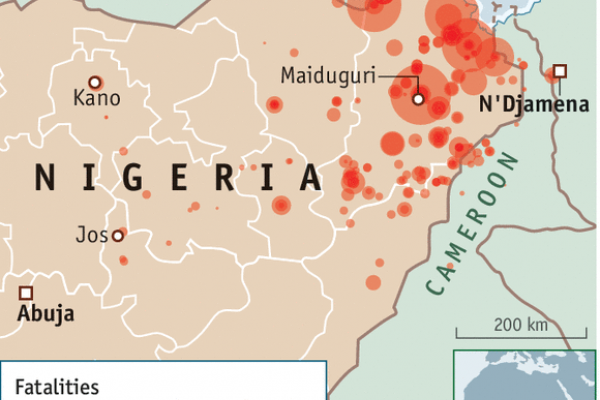November 18, 2015
NSF RAPID grant

An NSF RAPID is supporting our research on the impact of refugee pastoralists from Nigeria on the pastoral ecosystem in the Logone Floodplain of Cameroon. Here is the summary from the NSF website.
RAPID: Studying the Effects of Disturbance in a Complex Socioecological System, Mark Moritz (BCS-1600221).
This research asks a significant scientific and humanitarian question: what happens when a smoothly functioning and sustainable socio-ecological system is disturbed by refugees from an external political crisis? The question is timely as well as scientifically important. A valuable opportunity to investigate it on a small and thus manageable research scale is provided by the crisis in Northeast Nigeria. In the last two years, thousands of pastoralists have fled the insecurity caused by Boko Haram in Nigeria and moved with their livestock to the Logone Floodplain in the Far North Region of Cameroon. In earlier research, the researchers, Dr. Mark Moritz (Ohio State University) and his team, found that the mobile pastoralists who were already using the Logone region were sustainably managing these grazing resources without conflict. They had developed a decentralized and flexible system in which access was open to all, regardless of ethnicity, nationality, seniority, or socioeconomic status. This baseline research plus the disturbance provided by the refugee newcomers gives the researchers a rare opportunity to see how resilient a previously documented system is to an extreme perturbation. Will the ethos of open access survive when the influx of newcomers doubles the population the system must support?
Cumulatively, the human, animal, and natural elements of the Logone plain comprise a complex adaptive system in which, even though there is no central authority, individual decision-making results in an ideal free distribution of grazing pressure over the available grazing resources. Now the researchers will look to see if there is still an ideal free distribution of pastoralists; if the influx of refugee pastoralists has affected the ethos and practice of open access; and what other changes the influx has brought about. They will use GPS/GIS technology to map the locations of pastoralist camps; document at intervals the current distribution of vegetative resources by using the Normalized Difference Vegetation Index, a remotely sensed vegetative index that is refreshed frequently; document transhumance orbits to look for changes; and interview both Nigerian and Cameroonian pastoralists about their strategies. The urgency of this project, and hence the need for a RAPID award, is that at this particular moment the pastoral system is under the greatest stress, which allows the researchers to study in real time a socio-ecological system as it adapts or collapses.
